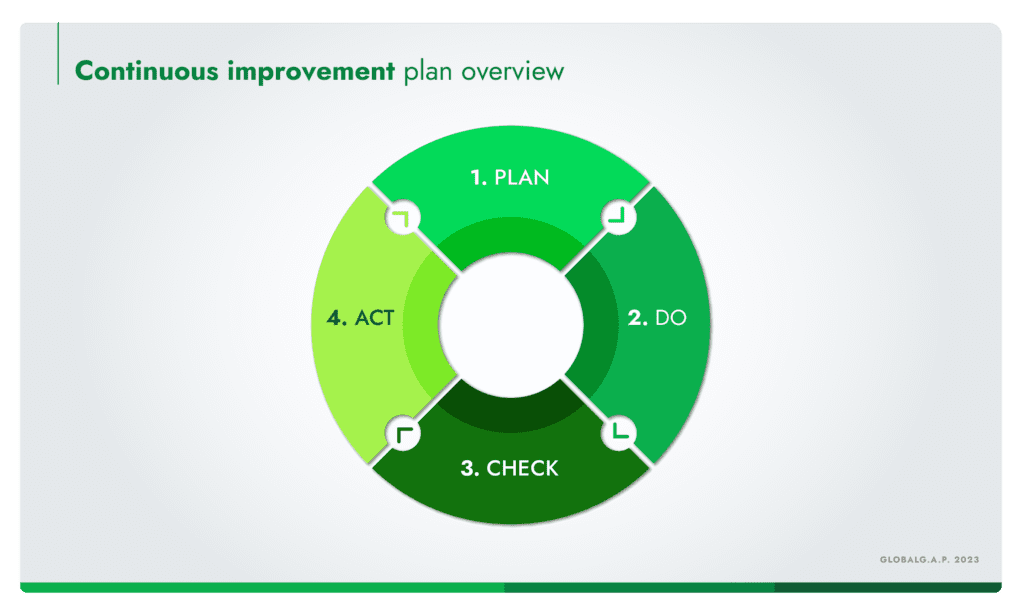You are invited to join Sue Hayward (Quality and Compliance Manager, Darling Group) and the Trevelyan’s GLOBALG.A.P. team for a workshop on continuous improvement plans – which is a new compulsory element for GLOBALG.A.P. version 6 (current version). Attendance is advisable to help ensure your upcoming GLOBALG.A.P. audit is efficient and successful. The session will be recorded and available for further reference and for those who are unable to attend.
In this workshop you will:
- Learn about what continuous improvement is and review some examples;
- Brainstorm ideas of what you could improve in your avocado orchard business; and,
- Learn how to document your continuous improvement plan for compliance for your GLOBALG.A.P. audit using our templates.
Location: (Shed 1 Lunchroom) Trevelyan’s 310 Number 1 Road, Te Puke 3182
Date: Thursday 26 June 2025
Time: 10.30am – 12.30pm
Please report to the office and sign in on arrival.
Morning tea provided.
Email Yvonne Smythe as soon as possible if you would like to attend: yvonne@trevelyan.co.nz
Please note: this workshop is also relevant and important for those growers with no crop for the 2025-26 season – you will need to have this area of compliance sorted for your next GLOBAL G.A.P. audit and it is recommended to start your continuous improvement planning now, regardless of if you have a crop or not.
A little bit about continuous improvement plans…
What is a continuous improvement plan?
In GLOBALG.A.P. (Good Agricultural Practices), Continuous Improvement Plans (CIPs) refer to a structured approach that producers use to enhance their agricultural practices over time — beyond simply meeting the baseline standard.
What continuous improvement plans typically involve in GLOBALG.A.P.:
- Identifying Areas for Improvement
- Setting Improvement Objectives; For example:
- Reduce water use by 15% over the next two seasons.
- Transition to 100% recyclable packaging within 12 months.
- Developing and Documenting Action Plans
- Monitoring and Evaluation
- Review and Update
- Documenting the above
- Demonstrates proactive farm management
- Builds resilience to risk (e.g. climate, labour, market)
- Enhances market access, especially with buyers who expect more than just compliance
- Supports sustainability goals
- Can reduce audit risk over time

